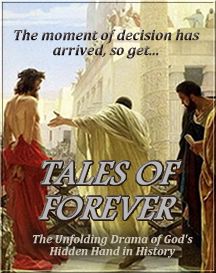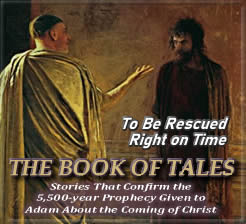To Donate or Not to Donate
That is the Question, Pt. 5 of 5
Doing things God’s way, then, is the goal of every Christian. Not my will be done, to echo Jesus’s words at Gethsemane, but God’s will be done. As such, we’d do well to recall scenes in The Bible like the one where the widow gave the last money she had, because in that scene we’re witnessing one of the greatest examples of giving in Scripture. That’s because in the case of this brave lady, we’re not talking about giving that was motivated by human desire or need; we’re talking about giving as an act of sheer faith, a complete and utter act of worship, where the object of her actions was more precious than herself.
We see the same thing in the case of the woman who broke the alabaster box on the head of Jesus. In that scenario, we have another example of the kind of giving that clearly goes against the grain of a human-oriented view of giving. As it is written:
While Jesus was in Bethany reclining at the table in the home of Simon the leper, a woman came with an alabaster jar of expensive perfume, made of pure nard. She broke open the jar and poured it on Jesus’ head.
Some of those present, however, expressed their indignation to one another: “Why this waste of perfume? It could have been sold for a lot of money, and the money given to the poor.” And they scolded her.
But Jesus said, “Leave her alone; why are you bothering her? She has done a beautiful thing for Me. The poor you’ll always have with you, and you can help them whenever you want. But you won’t always have Me. She’s done what she could to anoint My body in advance of My burial. And truly I tell you, wherever the gospel is preached in all the world, what she’s done will also be told in memory of her.”1
Just think about what Jesus said in this verse: “Wherever the gospel is preached in all the world, what she’s done will also be told in memory of her.” What concerns me here, then, is that I don’t actually remember the last time I heard a preacher talk about this woman’s gift. Do you? What does that tell you? It tells me that there’s still a great deal that the Church has to learn about its mission to explain God’s purposes in regard to giving.
Just think about your own reaction to this passage. Ask yourself: How often have you been motivated to give to a church because you were told that the poor needed your gift of money? Then, in opposition to that: How often have you been motivated to give to a church because God Himself was worthy of your act of giving, which is to say, a selfless action in response to the worth of God’s word alone, being taught by a teacher of God’s word?
Funny how when you put it that way, most Bible-loving Christians would have no issue with admitting it was about time that someone pointed out such a contradiction of terms. Naturally, they’d be more than happy to confess they’ve neglected to keep in memory these words of Jesus regarding this kind of faith. And please, don’t get me wrong, I’m too am just as guilty as every other Christian in regard to such a confession, which is exactly why I’m submitting this discourse to myself as much as to anyone else who is interested in such things.
That said, to restore a correct understanding of biblical giving, let’s ask the next obvious question: How could the actions of this woman provide us with clues toward a biblically oriented view of giving God’s way, of giving the faith way?
Story Continues Below
Says Richard Price—the founder and CEO of Academia.edu—on his podcast In Depth With Academia:
Fish Tales (From the Belly of the Whale): Fifty of the Greatest Misconceptions Ever Blamed on The Bible is:
To hear Price’s book review of Fish Tales (From the Belly of the Whale), CLICK HERE.
To hear Kent and Zen Garcia talk about correcting biblical misconceptions, from September 9th, 2021, CLICK BELOW.
Story Continues From Above
The first thing I’d suggest, as with all things paradoxical, is in so many cases the real difficulty with our quest lies in the fact that there’s just as much confusion about what real faith is as there is about real giving, biblically speaking. Ironically enough, I’d submit that the two concepts, so often misunderstood, are actually linked in a very important way. Which is just another way of saying: If you come to a precise understanding of biblical faith, you’ll also be that much closer to a proper understanding of biblical giving. Let me explain what I mean by that.
Consider the typical view of faith. When you ask any Christian if they have faith, naturally they’d all say they did. But if you then ask them what they mean by that, they typically offer up the same answer. “Faith … you know … in Jesus, in God, in Scripture… I believe, that’s all; what’s so hard to understand about that?”
To which I’d reply, “I see; you believe in Jesus.”
“That’s right,” they’d say. “Just like it says in The Bible: Believe in the Lord Jesus Christ, and you’ll be saved.”
Not wanting to be a complete downer, but hoping always for clarity when it comes to all things Bible, that’s when I’d interject the following: “But doesn’t The Bible also say that the demons believe in God and they tremble. Does that mean they’re saved, too?”
“Well, when you put it that way,” they’d reluctantly offer, “I’m not sure what to think. If you’re so smart, you explain it, that is, if you can.”
Okay, let me try, then. I think the real problem lies in a variey of factors, all of which have been aggravated by centuries of tradition to reinforce the confusion. The first thing we’ve got to realize is that the idea of “faith” has been changed from its original meaning as conveyed by the biblical writers into something altogether different to anyone who never bothers to resolve one of the primary issues in Scripture. That is to say, the deepest truths of The Bible are always paradoxical in nature, and so there true meaning is only revealed after much thought and analysis. In the case of faith, the most obvious way to explain why it’s so misunderstood is that in English the word “faith” is a noun, which is to say, faith is a thing, like a handkerchief, a wallet, or a pen that you have and hold, and so can put in your pocket. However, in the minds of the biblical writers, the word they were using for “faith” in the Greek, pisteo, was not a noun but was in fact a verb, which is to say, real faith is an action, as in something do when you lean on a cane because you believe it will support your weight. As such, when the writer to the Hebrews spoke of faith, he wasn’t saying that if you believe in God or Jesus or The Bible the same way you believe in ghosts, or Santa Claus, or the Tooth Fairy, you’ll be saved. In their understanding of the word, they were saying that if you act in accordance to your belief that when God makes a promise, He’ll keep it, then, and only then, are you having faith in biblical terms. In short, faith is an action based on your belief that when God says something He’ll bring it to pass.
That said, exactly what kind of actions would constitute biblical faith in the context of all that we’ve discussed so for? And more importantly, what was it about the woman who “wasted” her precious anointment that prompted Jesus to invoke a timeless memorial in honor of this singular act? As I see it, it’s because of one simple reason, which is this: Yes, Jesus’ disciples all had exhibited great courage in following Jesus through thick and thin right up to that fateful moment leading up to His crucifixion. Even so, to a man, I’d suggest they all had a blind spot when it came to believing in Jesus and His stated mission. Repeatedly, Jesus had predicted His death at the hands of cruel and unjust men, but strangely enough, as Scripture records, none of the disciples could accept this fate for the Man they saw walk on water, calm the storm with but a word, and heal the deaf, dumb, and blind. In their view of the Messiah, Jesus was impervious to such human conditions like death, so even though Jesus repeatedly predicted it, His words went in one set of ears and right out the other, as it were.
But not so with the woman with the alabaster box. Even though it made no sense from their human perspective—as spiritually tuned as it was to perceive that Jesus was the Christ—having arrived at that realization, they still failed to believe in the total message as Jesus preached about His ultimate mission. In other words, as difficult as it was for many of the Jews in His days to embrace Him as the Promised Messiah, it was even harder still to perceive the mystery that required His crucifixion. That’s because while the disciples were all too happy to embrace Jesus as the great liberator, the conquering Son of Man, as prophesied by the likes of Enoch, they clearly had yet to get on board with the fact that en route to the enthronement of Christ there lay the cross of Golgotha. But again, I say, not so with this faithful woman, who, in her selfless act of “waste,” didn’t just hear Jesus’ message of dying and rising again; she acted as though what He said would actually come to pass.
So, having clarified the difference between real faith and mere belief, between real giving and merely donating, may all who pass this way take note and like the heroes of old endeavor to do things God’s way, as an act of worship in response to the teaching of God’s word. When you encounter a message such as I’ve presented here today, one that quickens the word of truth, “as deep calling out to deep,” may you too have the courage to “share materially in all good things with the teacher,” as Paul described it, so that:
God, Who supplies seed for the sower and bread to eat, will also supply you with all the seed you need, and will make it grow and produce a rich harvest from your generosity… Because this service you perform not only meets the needs of God’s people but also produces an outpouring of thanks to God.2
In the end, by giving this way, you’ll not only be blessed by being able to “take it with you” over there, but you’ll also bless those to whom the Church ministers to, here and now—much to the chagrin of the Evil One who’d always prefer that we short-circuit God’s way of doing things by doing them his way.






